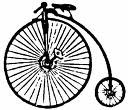I dislike spreadsheets, and it might be said of me that I am 'better with words than numbers'. The concept of a budget, as described by some experts, is therefore mildly horrifying to me. However, I am interested in making sure that my finances add up, and that I am able to pay for things that are important to me, and also to save for the future. My preferred approach is therefore as follows:
Every year or so, or whenever we have a significant change in our finances, we review and update an ongoing list of our fixed monthly direct debits, for mortgage, electricity and so forth, and make sure that this is up-to-date, looking through our bank statements to check that we have captured any changes, and giving some thought to any direct debits we might want to cancel or amend. The list of regular fixed payments includes a separate allowance for each of us, as well as payment to a 'fun', 'holiday', and 'car' jar.
The list of direct debits includes one to an 'annual bills' jar, which is calculated using a list of those bills which need to be paid less often than monthly, for instance car servicing, insurance and car tax. These are added up and the total is divided by twelve, to come up with an average monthly amount. (Money is transferred from the annual bills jar to the current account as these irregular bills need to be paid.)
We then check that the amount we have estimated for non-fixed expenses like travel and food is still appropriate, by looking through our credit card expenses for the last few months, and taking an approximate monthly average.
We check, and update as appropriate, the amount we have listed as income.
Once this has been done, we have an approximate idea of how much money we have spare each month, once essentials have been paid for.
This is where our system becomes rather chaotic; we have never found it practicable or helpful to allocate fixed amounts for different types of expenditure, but instead prefer to operate the 'pay yourself first' system. Under this, and taking account of the calculations above, we transfer out a certain amount of money to savings each month as soon as we have been paid. Sometimes we need to transfer some money back later for particular purposes, but as a general rule this works fairly well, and because the money is not sitting in the current account, it cannot be spent quite as easily. And as both savings and regular payments have been accounted for, the money spare can be used however we see fit, without us having to worry about whether we have over-spent on travel, or entertainment, or eating out, that month. (Over the last month or two, however, I have been trying to get a more precise idea of our spending, by tracking our expenditures on a spreadsheet.)
The paragraph above assumes that there is some money left over for saving once essentials have been taken into account; I will look at the question of reducing monthly outgoings in future posts, as well as the subject of self-employment and budgeting for taxes. I will also include some more expert opinions than mine on budgeting, and its value.
Gretchen Rubin’s 2025 Gift Guides
2 days ago





I created a website (EasyBudgeting) which provides everyday people with the ability to download a simple, straightforward and easy to use Excel based budget planner.
ReplyDeleteOnce downloaded to your PC, it can used as many times as you want, whenever you want, wherever you want in a secure environment i.e. yuou don't need to be online to use it!
It’s helped 100’s of people worldwide and could be useful for your visitors.
Good luck, Rhys